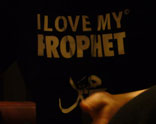On the infallibility of the Prophet
Allah, Glory be to Him, the Most High, says concerning the rights of His apostle Muhammad, (peace be upon him and his household): ﴾God will protect you from the people﴿ (5:67). He also says: ﴾He does not speak from his desires, it is nothing but a revelation revealed to him﴿ (53:3). He further says: ﴾What the Prophet brings to you, accept it; what he prohibits you, refrain from it﴿(59:7). These verses clearly point to his complete infallibility under all circumstances. You say that the Prophet of God (peace be upon him and his household) is infallible only in proclaiming the Qur'an. Apart from that, he is like other human beings, he errs and does right. You derive proofs of his mistakes at different occasions by traditions which you report in your Sahih works.
If that is the case, what is the proof and evidence in your claim to adhere to the book of God and the sunna of His prophet as long as this sunna is, in your view, not infallible and there is a possibility of error in it?
On this basis, then, clinging to the book of God and the sunna, according to your belief, does not guarantee one from not being led astray especially as we know that the whole Qur'an is explained and made clear by the Prophetic sunna. What is your proof that the commentary and explanations are not contrary to the book of Allah, the most exalted?
One of them expressed this opinion to me: "The Prophet of God certainly opposed the Qur'an in many rulings according to the demands of the occasion". I said in a surprised manner: "Cite me one example of this opposition".
He said: "The Qur'an says: ﴾The adulteress and the adulterer, lash both of them with one hundred lashings﴿ (24:2). Whereas the Prophet ordered the stoning of the adulterer and adulteress, this [ruling] is not found in the Qur'an".
I said: "The stoning is for the married person who fornicates, whether male or female, whereas lashing is for the unmarried person if he/she fornicates, whether male or female".
He said: "In the Qur'an, there is no [mention of] unmarried or married [person] as Allah does not specify it, rather, He uses the term adulterer and adulteress without qualifying it".
I said: "Then, on this basis, does this mean that every general ruling in the Qur'an which was specified by the Prophet is thereby contradictory to the Qur'an? Then, do you say that the Prophet opposed the Qur'an in most of his rulings?" He replied diffidently: "The Qur'an is only infallible because Allah has guaranteed its protection. As for the Prophet, he is a man. He errs and does right. As the Qur'an says about him: 'Say I am nothing but a man like you'". I said: "Why do you pray the morning, midday, afternoon evening and night prayer whereas the Qur'an used the general word, prayer, without specifying it's timings?" He replied: "In the Qur'an, it says: 'Indeed the prayer was a prescribed time for the believers'. The Prophet explained the timings of the prayers". I said: "Why do you believe him in the timings of the prayers and you refute him in the rulings on stoning the adulterer?"
He tried his best to satisfy me with contradictory, barren philosophies which do not stand against intellectual or logical proofs. For example, he said: "One cannot doubt about the prayer because the Prophet of Allah performed it during the whole of his life, five times every day. However, we cannot be so sure about stoning since he did it only once or twice during his lifetime". Similarly, he claims that the Prophet does not err when God commands him on an issue. However, when he judges by his own reasoning, then he is not infallible. Due to that, the companions would ask him in every case, is this from himself or from God? If he said: "This is from Allah", they obeyed him without any argument. If he said: "This is from me", then they would argue, dispute and advise him. He would accept their advices and views. The Qur'an was at times revealed in agreement with the views of some companions and opposed his (the Prophet's) views as [happened] in the question of the prisoners of Badr and other famous incidents.
I tried my best to persuade him but without any success because the scholars of the ahl al-sunna wa'l-Jama'a are convinced by this [view] and the Sihah are full of such traditions which destroy the infallibility of the Prophet. It makes him [appear as] a person lower in status than a pious person or a military leader or lower than a Sufi shaykh of the path. I would not be exaggerating if I said that he is lower in status than an ordinary person. If we read some of the traditions in the Sihah of the ahl al-sunna wa'l-Jama'a, it would be absolutely clear to us the degree of influence that the Umayyads, from their times, have had on the thinking of the Muslims, and that their vestiges have remained with the people even today.
If we searched for the aim or goal for that, we would reach a certain and bitter conclusion, which is; those who ruled the Muslims during the Umayyad dynasty, the chief of whom was Mu'awiya b. Abu Sufyan, did not believe, for a day, that Muhammad b. 'Abd Allah was sent with God's message or that he was truly God's Messenger. Most probably, they believed that he was a magician who overwhelmed the people and built a kingdom at the cost of the downtrodden people, especially the slaves who supported and helped him in his claims. This is not mere conjecture, since some conjectures can be sinful. When we read the historical works to study the character of Mu'awiya and those around him, and what he did during his lifespan, especially when he ruled, the conjecture becomes a reality, there is no escape from it.
All of us know who Mu'awiya is and who his father Abu Sufyan and his mother Hind are. He is the freed slave, son of a freed slave, who spent his youth in the circle of his father mobilizing an army to fight the Prophet of God and to opposing his mission with all effort. When all his attempts failed and when the Prophet of God (peace be upon him and his household) emerged victorious over him and his father, he accepted Islam for pragmatic reasons without any conviction. The Prophet, due to his nobility and great character, forgave him and called him the freed man (al-taliq) . After the death of the bearer of the message, his (Mu'awiya's) father tried to instigate discord and sedition in Islam. That was when, at night, he came to Imam 'Ali inciting him to rise against Abu Bakr and 'Umar and tempting him with property and men. Imam 'Ali (A.S.) knew his aim and so ignored him. He remained living in rancour against Islam and Muslims for the whole of his life until the Caliphate came to his cousin 'Uthman. At that time, the disbelief and hypocrisy lying within him surfaced and he said: "Seize it, seize it again, by what Abu Sufyan swears, there is neither heaven nor hell".
Ibn Asakir has reported in his historical work in the sixth volume, page 407, from Anas, that Abu Sufyan visited 'Uthman after he had become blind. He asked him: "Is there anyone around?" They said: "No". He said: "O God, make the matters [as they were] at the time of the Jahiliyya and the kingdom [belong] to the usurpers and make the Banu Umayyads the tent pegs (awtad) of the earth".
As for his son Mu'awiya, what do you know about Mu'awiya? There are no bounds as to what one can say concerning what he did to the umma of Muhammad (peace be upon him and his household) during his governorship in Syria and after gaining control of the Caliphate through force and power. The historians have mentioned [his acts] concerning his defiling the Qur'an and sunna and transgressing all the boundaries of the shari'a . His actions are those which even the pen cannot write and the to




















